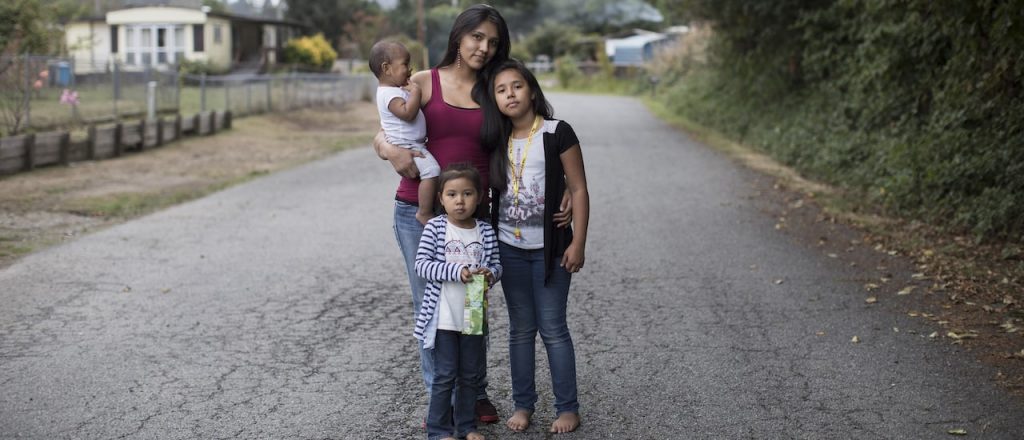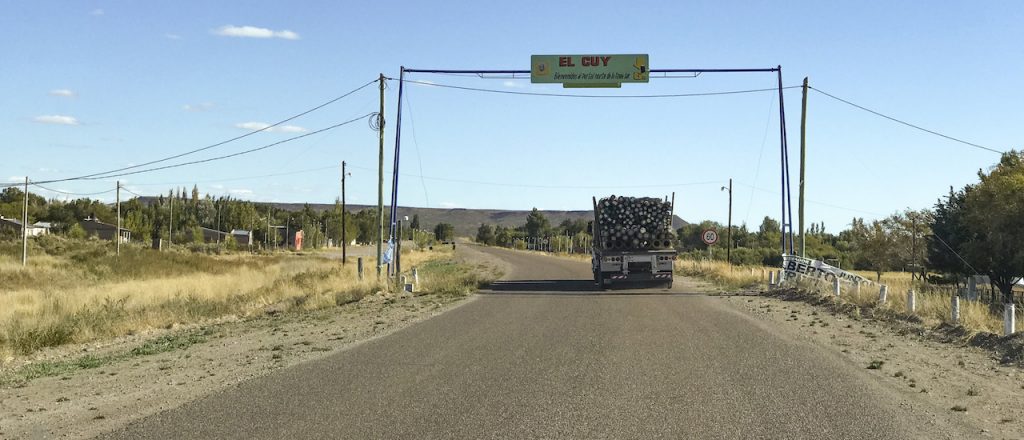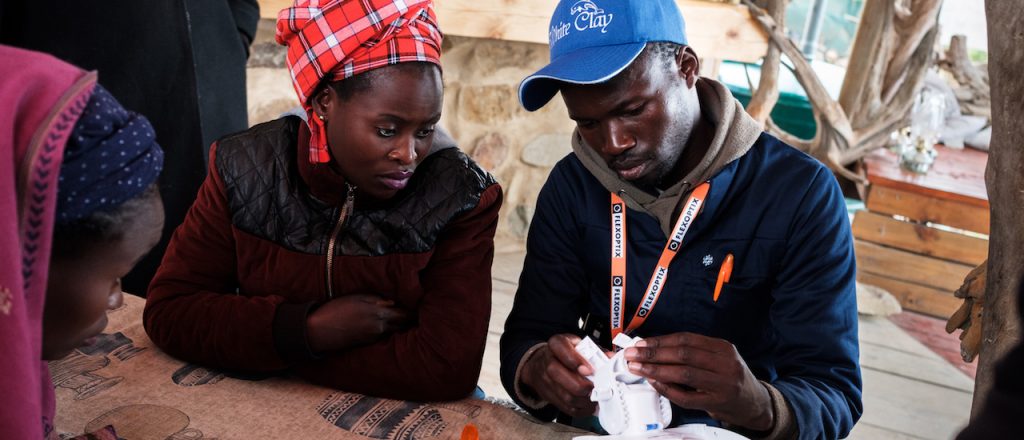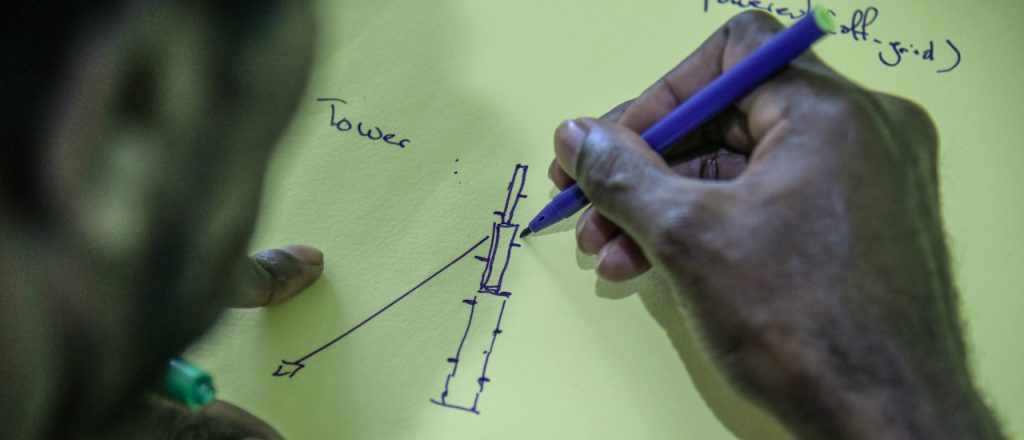The Week in Internet News: Toronto Looks to Community Broadband

Broadband for the city: Toronto, the largest city in Canada, will consider building a municipal broadband network to bridge the digital divide, Now Toronto reports. A government committee has endorsed the ConnectTO initiative, which aims to fill in underserved areas in the city while avoiding competition with current Internet service providers. Meanwhile, Tucson, Arizona, is building its own municipal broadband network, StateScoop says. The network will focus on serving government offices, students, and elderly residents who lack reliable Internet service.
Protesting subsidies: In another broadband story, some rural ISPs are questioning an $886 million U.S. Federal Communications Commission rural broadband subsidy to SpaceX, the Elon Musk-owned company that has launched a satellite-based Internet service, reports Bloomberg on Al Jazeera. Some rural ISPs have suggested the satellite service is still in beta and plans to serve parts of New York City and airports in Newark and Miami, which don’t fit in with the mission of the FCC’s Rural Digital Opportunity Fund.
Giant regulation: A new Japanese law requires tech giants to disclose terms of contracts with business partners and submit reports regularly to the government, in an effort to enforce fair business relationships with smaller companies, The Japan Times reports. The Continue reading
Member News: Mali Chapter Works to Get Women Online

Lending a hand: The Mali Chapter of the Internet Society is focusing on helping women who aren’t digitally literate connect to the Internet. The chapter is providing training to help these women, including women with disabilities, earn income through online services like Facebook and WhatsApp. Participants have included small business operators, including caterers and hairdressers.
Antisocial networks: A recent survey by Internet Society chapter the Israeli Internet Association has found that about half of the people in the country refrain from responding on social networks for fear of encountering violent reactions. The survey also found that 86 percent of Israelis believe that discourse on social networks is violent, and 80 percent believe that public figures and politicians share violent discourse on social media.
Talking governance: Netherlands chapter board member Ruben Brave was recently invited by the Ministry of Foreign Affairs and the FreedomLab think tank to give a speech about Internet governance and respond to a recent position paper. He focused on recognizing human rights during debates about Internet governance. “Invest again in the explicit contribution of human rights in the re-design and management of Internet protocols by making people and resources available to knowledge institutions and invest in training for Continue reading
Internet Society Foundation Awards $1M in Research Grants Studying the Future of the Internet

From the environment to the economy, the Internet is reshaping and disrupting several sectors of our society. What might future patterns of disruption look like? How will these changes affect all of us, particularly those on the margins of society? What new solutions can we generate today, to address the challenges of tomorrow?
At the Internet Society Foundation, we believe the answers to these questions and many others can be found in research. That’s why in September 2020 we announced $1M in grants to support researchers worldwide studying the future and sustainability of the Internet.
Today we’re thrilled to announce the seven awardees. Their projects explore important questions around the Internet’s relationship to society, such as the economic cost of the digital gender gap, the impact of digital labor platforms on worker’s rights, what climate solutions might help decarbonize the subsea cable network, and more.
Learn more about the awardees!
The Research programme is open to independent researchers and research institutions worldwide and is currently accepting statements of interest, to be reviewed on a rolling basis. Grants of up to US$200,000 will be awarded for research lasting up to two years.

The Internet Society Foundation was established in 2019 to Continue reading
The Week in Internet News: Cook Blasts Social Media Algorithms

Disinformation bots: Apple CEO Tim Cook raised concerns about social media algorithms promoting disinformation during a speech at an international privacy conference, ZDNet reports. “At a moment of rampant disinformation and conspiracy theories juiced by algorithms, we can no longer turn a blind eye to a theory of technology that says all engagement is good engagement – the longer the better – and all with the goal of collecting as much data as possible,” he said.
Gaming the stock market: In a rebellion against large Wall Street short sellers, a group of individual investors centered around a Reddit forum have been driving up the price of GameStop stock, even as the company faces questions about its long-term viability. One founder of the Reddit community called the effort “a train wreck happening in real time,” CNet reports. GameStop’s stock has shot up by more than 2700 percent since the beginning of the year, even as the bricks-and-mortar game software vendor is facing business challenges.
The power of Big Tech: The head of Saudi Arabia’s sovereign wealth fund is raising concerns about the huge influence of large tech firms, Arabian Business says. The fund is worried about “how some of these technology Continue reading
Businesses Can’t Afford to Lose Trust in the Encrypted Economy, and Neither Can You

End-to-end encrypted platforms have become an important means to establish online trust for businesses and individuals globally – and law enforcement/intelligence services are struggling to keep up.
Their unfamiliarity and uncertainty is reflected in the ambiguity of political discourse on the subject. On one hand, the European Union endorses strong encryption within data protection laws such as GDPR. On the other, attempts to intercept end-to-end-encrypted communication between suspicious parties resurface over and over again.
The Council Resolution on Encryption, adopted by the Council of the European Union, is the latest example. Politicians continue to strive for both strong end-to-end encryption and getting targeted access to information when – from a security and technology standpoint – the two concepts are at odds. Symbiosis is only possible in political rhetoric.
As the co-founder of an end-to-end encrypted cloud service, I am deeply concerned at how demands for access to encrypted data will affect the security of thousands of businesses and the millions of clients who rely on them in the EU and worldwide.
The Digital Economy Is at Risk
Our digital economy depends on the widespread use of strong encryption. This includes end-to-end encryption, within organizations of all shapes and sizes.
Sign Up for Internet Society Fundamentals and Advance an Internet for Everyone, Everywhere

Do you believe in an Internet that inspires development and progress? Do you want to enable opportunities to help people improve their quality of life? Are you ready to become an agent of change, starting in your own community? If you answered yes to these questions, this is your opportunity to shine! Join our Internet Society crew for the brand new Internet Society Fundamentals Program and get ready to make your mark. This opportunity is exclusive to our members and is available until March 15th.
During Internet Society Fundamentals you’ll learn to use your knowledge and personal skills to build local impact. Using the 2021 Action Plan as your blueprint, you’ll work to advance our vision: the Internet is for everyone.
Now is the time to start your journey!
Check your email for program details and submit the included form. You can also follow your member Chapter and SIG leaders on social media for instructions on how to begin, or contact your Community Engagement Manager for more information.
Not a member, but want to learn about opportunities like Internet Society Fundamentals and more? Join today!
Together we are strong. Together we build the future of Internet.
Image by Hudson Hintze via Continue reading
One Year After the First COVID Lockdown, A Secure Internet Shouldn’t Just Be for the Privileged Few

This past weekend, we observed the one-year anniversary of the first of many COVID-19 lockdowns. Since then, schools, small businesses, healthcare providers, and financial institutions around the world have relied on the Internet to maintain operations and deliver critical services – bringing the need for broadband access into sharp focus. The overflow of demand for digital communication amid the ongoing pandemic has put the Internet’s structural integrity and capacity to the test. Overwhelmingly, it has delivered.
The Internet’s network of networks has enabled massive segments of the global workforce to shift to remote operations, allowed schools to provide online educations to students around the world, and offered a space for countless businesses and individuals to continue to serve their communities amid a global crisis. The Internet’s role in not just sustaining crucial aspects of day-to-day life, but enabling communities to thrive throughout the COVID-19 pandemic is undoubtedly crucial. It is clear – now more than ever – that the Internet is indeed a force for good. The success of the Internet is the result of its universally accessible, decentralized, and open architecture; this Internet Way of Networking must be protected to allow us all to use this critical resource to its Continue reading
The Week in Internet News: Google Threatens to Leave Australia

Google won’t pay for news: Google has threatened to end its search engine services in Australia over the government’s efforts there to require the company to pay news publishers for articles it links to, the BBC reports. The proposed Australian news code would require Google and Facebook to enter into mediated negotiations with publishers over the value of news content, if they don’t reach agreement first.
RIP, balloon-based Internet: Alphabet, Google’s parent company, is shutting down Loon, its attempt to deliver Internet service through balloons floating in the stratosphere, CNet reports. Alphabet says the business model doesn’t work, with the company unable to get costs low enough to offer services.
Judge rejects Parler: A U.S. judge has ruled that Amazon doesn’t have to reinstate Parler, the conservative Twitter competitor, after the company kicked it off its web hosing services this month, NPR reports. Amazon kicked out Parler after some members of the site threatened U.S. lawmakers and allegedly used the service to plan the 6 January attack on the U.S. Capitol. Parler has argued that Amazon’s decision threatens it with “extinction,” but the judge ruled that Amazon is under no obligation to “host the incendiary speech that Continue reading
Closing in on Equity: Truist EPIC Grant Seeks to Expand Potential in Communities through Broadband Access

The image was shared around the world. Two little girls hunched over their laptops on a concrete sidewalk, accessing the free WiFi at a fast-food restaurant in order to complete their schoolwork. It was a bleak reminder of the stark digital divide in the United States, where millions are excluded from the benefits of affordable, reliable broadband service. In urban, suburban, and rural areas alike, 42 million Americans – 12% of the population – are on the wrong side of this divide, exacerbating inequalities in access to education, employment, and healthcare.
Conquering this digital divide calls for meaningful solutions, vision, and commitment. Truist has stepped up to the plate with an innovative new grant program that puts the power of connection in the hands of the people who stand to benefit from it. For the over 15 million Americans across the Southeast United States who lack adequate Internet access, broadband coverage cannot wait.
In partnership with Truist, the Internet Society is proud to announce the launch of the Truist EPIC Grant. The program is aimed at funding community-backed broadband – solutions that can help alleviate socioeconomic disparities exacerbated by lack of access.
The Truist EPIC Grant offers eligible Continue reading
Indigenous Communities Must Have Internet Access on Their Own Terms

A shorter version of this article was first published in the Toronto Star.
With the recent launch of the Universal Broadband Fund, or UBF, the federal government has committed to addressing the connectivity gap that is far too real for many people living in Canada. Over the past eight months, COVID-19 has shown us how important the Internet is during a crisis. Broadband access has become an essential service as critical as access to water or electricity. Minister Maryam Monsef was correct when she said: “High-speed Internet is more than just a convenience.”
Certainly, an investment of CAD$1.75 billion to help lower the hurdles that have left many Indigenous, rural, and remote communities in Canada on the wrong side of the digital divide is both needed and welcome. But officials need to take care not to disenfranchise the very communities they intend to help in the process. For the most challenging communities to connect to the Internet, success can only happen with community-led initiatives. It is critical that the communities most in need are full partners in the process, driving connectivity solutions that work for them, and have access to the necessary resources to make that happen.
This Continue reading
The Week in Internet News: Backlash after WhatsApp Plan to Share Data

Don’t share me: After WhatsApp announced plans to share user data with owner Facebook, many users have started to move on to other secure messaging apps, the Independent reports. Rival Telegram reported a 500 percent increase in new users after the change was announced. Meanwhile, WhatsApp and Facebook are launching advertising in an effort to keep users, with the companies taking out full-page advertisements in 10 Indian newspapers, Reuters says. India is WhatsApp’s largest market, with 400 million users.
Defending the ban hammer: Twitter CEO Jack Dorsey has defended the company’s decision to permanently ban outgoing U.S. President Donald Trump, after Trump supports attacked the U.S. Capitol, the BBC says. The decision was difficult, however, Dorsey said. “I do not celebrate or feel pride,” he tweeted. “After a clear warning we’d take this action, we made a decision with the best information we had based on threats to physical safety both on and off Twitter.”
Parler goes to court: In related news, Amazon Web Services ended its web hosting arrangement with right-wing Twitter competitor Parler after the Capitol riots, effectively shutting the microblogging site down. AWS pointed to a series of posts on Parler threatening violence, including Continue reading
Want to Make the Internet Even Better in 2021? Register for Our Special Edition Community Event

Early last year, as people across the world quarantined to slow the spread of the COVID-19 virus, the Internet became critical to maintaining a semblance of routine and getting the latest lifesaving information. But there was a stark reality. Those without Internet access would have to grapple without this vital resource amidst a global pandemic.
Internet Society volunteers around the world understood the gravity of the situation. They jumped in to enable secure access.
In North America, NYC Mesh, a community network supported by the Internet Society, rushed to connect as many households as they could. While it was still safe to do so, they crossed rooftops to bring connectivity to some of the city’s most underserved.
In Europe, the Internet Society Italy Chapter launched SOSDigitale to mobilize resources and volunteers to respond to urgent technology gaps. The Portugal Chapter followed with their own SOS Digital campaign to donate computers and digital support to at-risk youth.
And in Latin America, residents of El Cuy, in remote Patagonia, Argentina, were able to reduce their potential exposure to COVID-19 via their newly-established community network, accessing medical prescriptions, education, banking, and government resources online.
No one could have predicted the events of 2020. Continue reading
The Week in Internet News: U.K. Investigating Google Chrome’s Privacy Push

No more cookies: Google’s Chrome browser has announced a plan to replace tracking cookies with a system that shares less information with advertisers, but the U.K.’s Competition and Markets Authority is worried that more user privacy would have a “significant impact” on news websites and on the digital advertising market, the BBC reports. The agency has warned that publishers’ profits could drop if they no longer run personalized advertisements.
A vulgar display of content: The Chinese National Office Against Pornographic and Illegal Publications has fined short video app Douyin, a sister app to TikTok, for spreading “obscene, pornographic and vulgar information,” the South China Morning Post says. The app was fined “tens of thousands of yuan,” the regulator said. Regulators said they received more than 900 reports related to pornographic and vulgar content on Douyin in the past year.
The sports car Internet: Gigabit Internet service is coming to rural Kansas and Missouri with funding from the Federal Communications Commission’s Rural Digital Opportunity Fund, FlatlandKC.org reports. The site compared gigabit speeds to a fast sports car. The FCC has selected 180 winning bidders to receive $9.2 billion in funding to provide increased Internet access to 5.2 million Continue reading
Nominations Now Open for Public Interest Registry (PIR) Board of Directors
The Public Interest Registry (PIR) is the non-profit operator of the .ORG, .NGO and .ONG domains. PIR has been a champion for a free and open Internet for more than 15 years with a clear mission to be an exemplary domain name registry, provide a trusted digital identity and help educate those who dedicate themselves to improving our world.
If you or someone you know has the interest and qualifications to help guide the future of PIR, the Internet Society invites you to submit a nomination for a seat on the PIR Board of Directors.
Prior board or senior executive experience is preferred. All directors must have an appreciation for PIR’s Mission and the potential impact of PIR decisions on the customers of PIR and the global community served by .ORG and the other TLDs PIR operates. Directors must be able to read and understand a balance sheet, as well as read and communicate effectively in the English language.
In 2021 there are four positions opening on the PIR Board. The appointed directors will serve staggered terms, with half appointed to two year terms and half to three year terms, with terms beginning mid-year in 2021.
More information about the position, the qualifications, and a link to the Continue reading
The Week in Internet News: U.S. Stimulus Bill Pumps Up Broadband

Broadband to the people: A new COVID-19 stimulus bill passed by the U.S. Congress includes $7 billion to help residents connect to broadband and pay their monthly bills, the Washington Post reports. The legislation is one of the largest one-time investments in broadband ever in U.S. history. “Nearly half the money is slated to fund a new monthly benefit for low-income families, aiming to ensure that those who have lost their jobs can stay online at a time when the pandemic has forced millions of people to work, learn and communicate on their devices from home.”
RIP Flash: Adobe has finally killed off the controversial Flash video and animation tool that was a formative technology for the Internet, the Independent says. While Flash was widely used on websites for many years, critics complained about security problems and a poor user experience. In 2009, 99 percent of all PCs with an Internet connection had Flash installed, Adobe has said.
Alexa, what taxes do I owe? The Indian government is working on Alexa-like chatbots to deliver public services, India Today reports. The government has invited bids for a voice assistant similar to Amazon’s Alexa and Google Assistant. Using artificial Continue reading
Member News: Connecting Remote Tribes

Connecting the people: The San Francisco Chapter recently received a Beyond the Net Grant from the Internet Society Foundation and will use it to help bring high-quality Internet service to more than 9,000 Native Americans in in a remote area of southern California. The grant will be used to extend wireless service about seven miles further into tribal lands.
Campaign against disinformation: The Netherlands Chapter is working with the artificial intelligence-powered KRINO Project to fight fake news online. KRINO will be able to analyze online content, including political statements, social media posts, and even medical information, but with humans reviewing its recommendations. The AI-based tool is in development, and the chapter’s Make Media Great Again Working Group will help fine tune the tool.
How the Internet works: Recently, two Internet Society chapters have hosted Internet-related training programs for members of the community. The Mali Chapter hosted the first edition of the Mali School of Internet Governance, with 46 people, including lawyers, engineers, law enforcement officers, and students, participating. The goal of the training is to give participants the knowledge and confidence to participate effectively in Internet governance processes and debates at regional, national, and international levels.
Digital literacy: The Panama Chapter Continue reading
Championing the Internet Way of Networking in Latin America

The Internet has radically transformed our lives for the better, and the year 2020 has shown us it will play an increasingly crucial role in our daily lives. This year, we embarked on a project to analyze what makes the Internet so useful for those with access, and work with partners worldwide to advocate for a strong Internet that will benefit many generations to come.
Among the many collaborations on the Internet Way of Networking (IWN), our work in Latin America was a clear highlight. Thanks to the community’s massive support, we produced meaningful outcomes that will form a strong base for our future work. As we take stock of the year, we would like to celebrate the achievements and look to reaching greater heights in 2021.
Mapping the Regulatory Landscape
Engaging the community in the first half of the year, we asked experts in the region to help us map and monitor the regulatory regimes that applied to Internet intermediaries in their respective countries. Following a survey conducted between March and June, we produced (through the outstanding work of Paula Côrte Real) a map of the regulatory landscape in eight countries in the region. The exercise helped us Continue reading
A Look Back at 2020: How Community Networks Helped People Connect during COVID-19

Community networks connect people, helping to close the global digital divide one community at a time. At the Internet Society, we believe so much in this vision, we made ambitious goals for 2020.
We set out to support new networks, give people the training they need to deploy and manage them, bring people together to build a stronger community, and create and promote policies that support community networks (CNs), enabling more people to start or improve existing networks.
COVID-19 made this work especially pressing. Almost overnight, the Internet had become a lifeline to many, helping them to stay connected to friends and family, work and study from home, and access vital information and public services.
As the world saw the digital divide clearer than it ever has, the pandemic made working with communities harder. We had to adapt, change plans, and look for creative solutions to help people access the opportunities the Internet provides. It was one of the most challenging years in recent history, but through long-standing and new partnerships we were able to achieve our goals. Thank you to all our partners who made it possible!
Together, we trained over 300 people in skills for creating, operating, Continue reading
Reimagining the Africa Community Networks Summit during the COVID-19 Pandemic

At the Virtual Summit on Community Networks in Africa over 200 local connectivity network operators learn better ways to bring affordable and reliable connectivity to underserved communities.
Every year since 2016, community network operators, allies, partners, policymakers, and regulators in the region gather for the Summit on Community Networks in Africa. The gathering enables them to learn, share experiences, collaborate, and find solutions to connect the unconnected.
Last year’s summit was held in Dodoma, Tanzania under the theme Towards Resilient Community Networks. Fantsuam Foundation, one of the oldest community networks in Africa, who after building a vast network lost everything due to sectarian violence, inspired this theme.
This year’s event built on 2019’s theme but focused on navigating new challenges community networks faced in 2020 as they grappled with the impact of the COVID-19 pandemic.
Although the global pandemic prevented a physical gathering for the community networks, it presented an opportunity to reimagine the summit and find ways to promote collaboration, engagement, and learning among community network operators as well as the supporting ecosystem.
During the pandemic, access to the Internet has become a lifeline with day-to-day activities shifting online and responses to curb the spread of the virus with Continue reading
Going Virtual with Community Networks Voices in the Asia-Pacific: CNX APAC 2020

Each community network deployment has its own characteristics – ranging from the physical terrain to environmental conditions to local and cultural contexts. Having been involved in some 150 deployments, I can safely say no two are the same.
We helped establish CNX APAC in 2017 as a means to better understand the role, relevance, and evolution of community networks (CNs). It was designed to explore the different characteristics that make up CNs, their local context, the challenges they face, and the opportunities they create. It’s an event in the spirit of community, where community network practitioners come to exchange knowledge, share ideas, inspire others, and be inspired themselves.
For the past three years, we have typically held these as physical events located around some of our community networks deployments in the region. This allowed participants to get hands on with a working CN. The events were multi-dimensional in nature with a conference and knowledge-sharing session, coupled with training and technology demonstrations.
“To make community networks sustainable in the long run, the first thing is, the community has to own it, and the community needs to own it.”
— Mahabir Pun, Nepal
The impact of the global pandemic meant that Continue reading